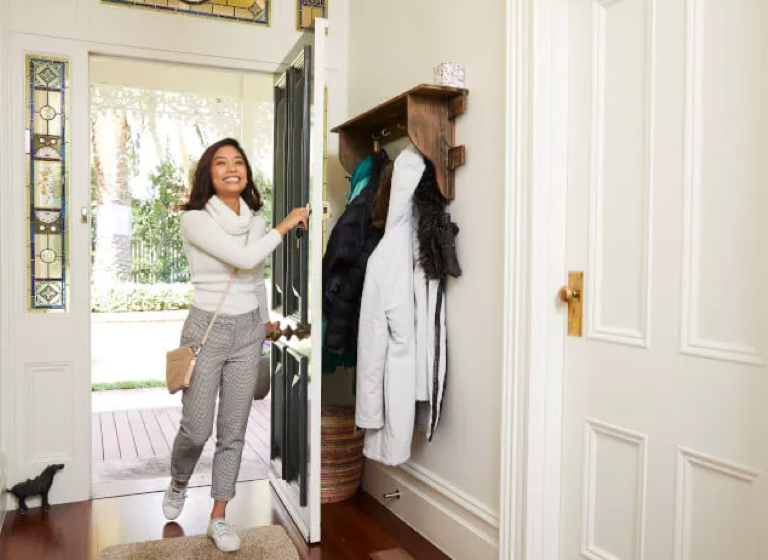Landlord Insurance in New South Wales Explained
Landlord Insurance in New South Wales Explained
*iSelect does not compare to all home and contents insurers in the market. The availability of policies may change from time to time. Not all policies made available from iSelect’s providers are compared by iSelect and due to commercial arrangements, area or availability, not all policies compared by iSelect will be available to all customers. See below for our range of home and contents insurers. Some policies are only available from iSelect’s call centre or online. Our advice on this website is of general nature and does not consider your situation or needs. Consider if any advice is appropriate for you before acting on it. Learn more.
Compare home and contents insurance the easy way*
Save time and effort by comparing a range of home and contents insurance policies with iSelect
What is Landlord Insurance?
Is Landlord Insurance mandatory in NSW?
Do I need Landlord Insurance if I have Building Insurance?
Are Landlord Insurance premiums tax deductible?
What could my Landlord Insurance cover in NSW?
Does Landlord Insurance cover theft by tenants?
What isn’t included in Landlord Insurance?
How can I compare Landlord Insurance in NSW?
What is Landlord Insurance?
Like Home and Contents Insurance in NSW, Landlord Insurance exists for when the unexpected happens. With it, you may be able to minimise the financial damage done if you can’t rent out your property for a time or your tenants default on their rent. Depending on the policy, it may also help soften the blow of other potential mishaps. Essentially, it could be a way for you to take some of the risk out of your property investment.
Is Landlord Insurance mandatory in NSW?
Landlord Insurance isn’t a must in NSW (or anywhere else in Australia actually). However, something doesn’t need to be enforced to be a good idea. After all, who knows what the future holds for you, your rental and your tenants.
Plus, there are a few quirks of NSW rental law that could mean Landlord Insurance gives you a bit more peace of mind. For instance, if your tenant needs to break their lease to escape domestic violence, they can do so immediately and without needing to pay the mandatory break fees.1NSW Fair Trading – Changes to the residential tenancy laws Landlord Insurance may then be able to help cover this period of unexpected occupancy until you find another renter.
Or say you consent to your tenant keeping a pet at the property. Unfortunately, even the best-behaved pets can cause damage to a rental, like chewing or scratching something they shouldn’t. But you can’t legally ask for a higher bond to help repair the potential damage caused.2NSW Fair Trading – Starting a residential tenancy Instead, Landlord Insurance with coverage for pets could manage the costs of Fluffy or Fido doing their own renovations (to an extent anyway).
Do I need Landlord Insurance if I have Building Insurance?
Landlord Insurance and Building Insurance are two different types of insurance. Generally:
- Landlord Insurance protects you against things like malicious or accidental damage to your rental property by tenants, or lost income from a tenant defaulting on their rent.
- Building Insurance covers you for repairs or replacement of your building if it’s damaged or destroyed in certain ways, like from a fire.
However, there can be some crossover with what different policies cover. You might find your property’s Building or Home Insurance includes elements of Landlord Insurance or you might need to take out an additional policy.
If you’re dealing with a strata property, like an apartment, things can get even murkier. This is because NSW strata owners corporations must have Building Insurance and Public Liability Insurance. However, this may only cover communal areas or shared parts of the building. Further, even if a common property issue damages parts of your rental or the contents, this strata-owned insurance may not apply.3NSW Government – Managing strata finances and insurance, 4As above
So whether it’s a burst common pipe or a once-in-a-lifetime earthquake, you could be stuck dealing with the financial aftermath – including being unable to lease it for a time. But if you had both Landlord and Building Insurance, you could get a degree of coverage for the damage to the property along with the loss of rent.
Are Landlord Insurance premiums tax deductible?
As a rule of thumb, you can claim your Landlord Insurance premiums on your tax.5Australian Taxation Office – Rental expenses you can claim now However, it can only be for the time when your property is genuinely available for rent and for the parts of the property that rent covers.6Australian Taxation Office – Rental expenses to claim Clear as mud, right? Essentially, it’s probably not a good idea to claim the time you use it as a holiday home or for parts of the house that you still use if you’re only renting out a bedroom.
What could my Landlord Insurance cover in NSW?
Ultimately, your policy will explain exactly what your Landlord Insurance covers and there can be variation between different policies. However, there are a few things you’d expect to see pop up when comparing Landlord Insurance, like:7Forbes Advisor – Landlord Insurance In Australia: What You Need to Know
- Missed rent
- Damage caused by tenants or their guests (this can vary between accidental and malicious or intentional damage though)
- Theft by tenants or their guests
- Loss of rent if your property becomes uninhabitable or is vacant for a period
- Lease break (when a tenant vacates your property before their lease expires)
- Legal expenses associated with tenant disputes
- Flood damage to fixtures and fittings
- Replacement locks and keys
- Explosions
If you want, you can read through the Product Disclosure Statement (PDS) to see when and where you’re covered.
Does Landlord Insurance cover theft by tenants?
There are Landlord Insurance Policies that cover theft, whether it’s your tenant or a visitor of theirs taking something from your rental. If you ever do need to claim for this, it’s a good idea to let the police know about the incident as well — it might even be a requirement to do so to get your claim processed.8Budget Direct – Your Home and Contents Insurance Policy Product Disclosure Statement, p55
What isn’t included in Landlord Insurance?
As you’re comparing Landlord Insurance, you might notice some further common ground between policies. This time it’s what they don’t cover, like:
- Tenant’s personal belongings: While they may keep their possessions in your property, tenants will need to get their own insurance to cover their furniture and so on.9NSW Government – Landlords’ and tenants’ rights after an emergency
- Multiple instances of theft or damage: If, for whatever reason, your tenant or their visitors steal from your property or damage it repeatedly, you can’t make multiple of these claims on the same lease agreement. Instead, you may need to seek other ways to recover the loss as well as look at solutions to stop these incidents from happening again.10ING – Home and Contents Insurance Product Disclosure Statement, p55
- Flooding: While you can get Landlord Insurance that covers some natural disasters like fire and lightning, flood may not always be included alongside them.11Budget Direct – Landlord Insurance You may need to purchase Flood Cover for that protection. This could definitely be a good idea if you’re in a flood risk area — Australia is the land of ‘droughts and flooding rains’ after all.
How can I compare Landlord Insurance in NSW?
Slogging your way through PDS after PDS can be a dry way to spend a day. But we might be able to make things a little easier. With our online comparison tool, you can check out various Landlord Insurance Policies from a range of different providers in just a few minutes.* Alternatively, if you want to chat through your options, we have a team waiting for your call at 13 19 20.

.svg)






